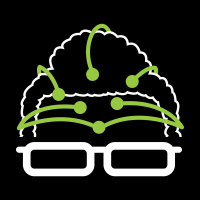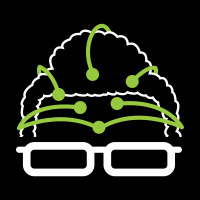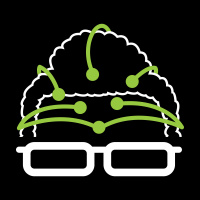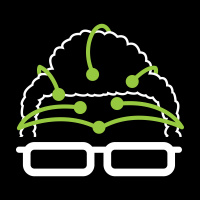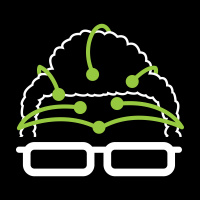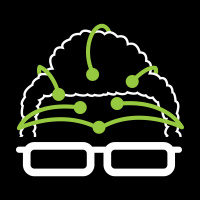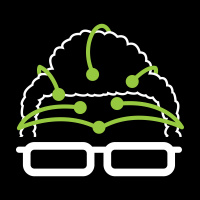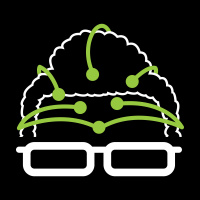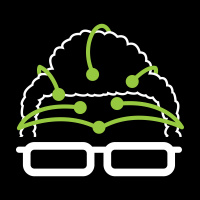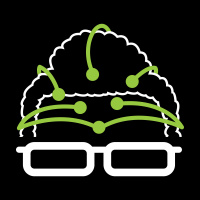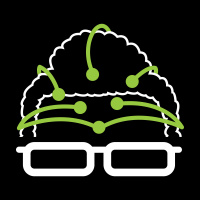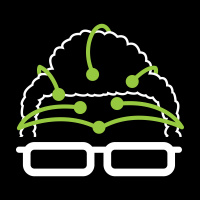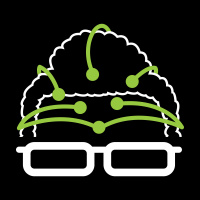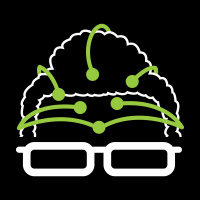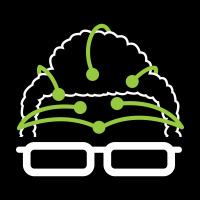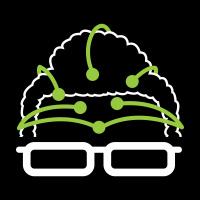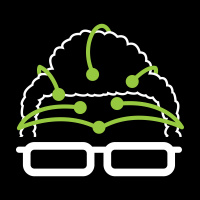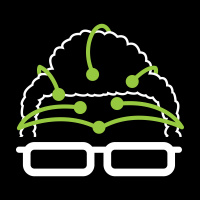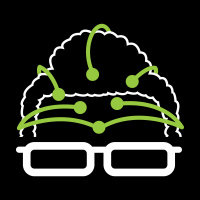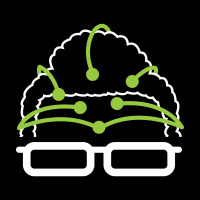Synopsis
The Buddhist Geeks Video podcast includes original recordings from the annual Buddhist Geeks Conference, and other video interviews and discussions from other Buddhist Geeks events.
Episodes
-
Disrupting the Awakening Industry
25/07/2015 Duration: 26minRohan Gunatillake, in this presentation taken from the Buddhist Geeks Conference in 2011, explores how Buddhism can learn from the suffering of other established systems such as the music, publishing and journalism industries. Rohan outlines his presentation based on the Buddha’s Four Noble Truths, explains how he used the concepts presented to launch an iPhone app, and challenges other entrepreneurs to join in the quest to bring these values to other business initiatives.Episode Links:http://rohangunatillake.combuddhify ( http://buddhify.com )See Privacy Policy at https://art19.com/privacy and California Privacy Notice at https://art19.com/privacy#do-not-sell-my-info. Get full access to Buddhist Geeks at buddhistgeeks.substack.com/subscribe
-
What Science Can Teach Us About Practice
25/07/2015 Duration: 21minIn this episode, taken from the Buddhist Geeks Conference in 2011, Kelly McGonigal, PhD in Health Psychology, speaks on how the neuroscience of meditation can help us understand how practice shapes the mind and can also offer fresh insights into concepts like mindfulness and suffering. As Dr. McGonigal presents various scientific studies that show differences in the brain functioning between meditators and non-meditators, she highlights how meditation practice benefits the practitioner in various ways such as higher pain thresholds and reduced depression.Episode Links:www.kellymcgonigal.comSee Privacy Policy at https://art19.com/privacy and California Privacy Notice at https://art19.com/privacy#do-not-sell-my-info. Get full access to Buddhist Geeks at buddhistgeeks.substack.com/subscribe
-
Singing Meditation
25/07/2015 Duration: 29minAri Goldfield and Rose Taylor are Buddhist teachers and translators . Goldfield is a Buddhist translator and teacher who has studied and practiced under the close guidance of Khenpo Tsültrim Gyamtso Rinpoche since 1995. Taylor is a Buddhist translator and second-generation Buddhist teacher who teaches Buddhist meditation, philosophy, yogic exercise and dance, and classical Tibetan language to Westerners as well as to the nuns at Khenpo Tsültrim Gyamtso Rinpoche’s nunneries in Bhutan and Nepal. In this conversation with host Vincent Horn they recount how each discovered their paths and together they explain the “songs of yogic joy”, one of the unique aspects of the Kagyu path of Tibetan Buddhism. As a special treat Goldfield and Taylor end the episode with two examples of this type of singing meditation.Episode Links:Wisdom Sun ( http://www.wisdomsun.org )Stars of Wisdom ( http://www.starsofwisdom.info )See Privacy Policy at https://art19.com/privacy and California Privacy Notice at https://art19.com/priva
-
The Buddha Walks Into a Bar
25/07/2015 Duration: 29minLodro Rinzler is a next generation Buddhist teacher in the Shambhala tradition and author of “The Buddha Walks Into a Bar.” In our discussion we focus primarily on the ways in which Generation Y is relating differently to dharma–from sex and relationships, to technological changes and instantaneous connection, to working with 1st generation Western teachers. We explore what differences are merely generational and which are more fundamental to our unique time and place.Episode Links:www.LodroRinzler.comThe Buddha Walks Into a Bar: A Guide to Life for a New Generation ( http://amzn.to/zzexf6 )Gampo Abbey ( http://www.gampoabbey.org )Shambhala Meditation Center of New York ( http://ny.shambhala.org )The Reciprocity Foundation ( http://www.reciprocityfoundation.org )See Privacy Policy at https://art19.com/privacy and California Privacy Notice at https://art19.com/privacy#do-not-sell-my-info. Get full access to Buddhist Geeks at buddhistgeeks.substack.com/subscribe
-
The Myth of the Teacher
25/07/2015 Duration: 21minMartine Batchelor joins Buddhist Geeks again, this time to explore the way that the roles of teacher and student are changing in contemporary times. While acknowledging various teacher models in the Buddhist tradition, she lays out the reasons she prefers the good friend, or adviser model that you find in the Theravada and Korean traditions. She speaks about the dangers of priming students as well as the dangers in teachers not acknowledging their own limitations and shortcomings. She then lays out a way of teaching that focuses on the fundamentals of developing concentration and inquiry, instead of focusing on a particular technique of meditation.This is part 2 of a two-part series. Listen to part 1, Practicing at the Crossroads.Episode Links:www.MartineBatchelor.orgThe Buddhist Teachers Council ( http://bit.ly/1S1aJYr )The Timeless Tradition of Spiritual Apprenticeship ( http://bit.ly/1S1aI6Z )See Privacy Policy at https://art19.com/privacy and California Privacy Notice at https://art19.com/privacy#do-not-s
-
Practicing at the Crossroads
25/07/2015 Duration: 33minMartine Batchelor was a nun in a Korean Buddhist monastery for 10 years, where she followed a traditional path of practice and exploration. We speak about her journey in becoming a nun, what the rhythms of that life were like, what practices she undertook, and how she came to integrate, and deepen, the understanding she uncovered during her decade of training there.The episode concludes with a compelling conversation about the multi-perspectival nature of human beings, and how we’re constantly practicing at a crossroads between various aspects of our lives.This is part 1 of a two-part series. Listen to part 2, The Myth of the Teacher.Episode Links:www.MartineBatchelor.orgChinul and the Hwadu Meditation ( http://www.openbuddha.com/2010/09/09/chinul-and-the-hwadu-meditation/ )Master Dahui ( https://en.wikipedia.org/wiki/Dahui_Zonggao )See Privacy Policy at https://art19.com/privacy and California Privacy Notice at https://art19.com/privacy#do-not-sell-my-info. Get full access to Buddhist Geeks at buddhistgeeks.
-
Uniting Technology and Wisdom
25/07/2015 Duration: 35minVincent Horn is a co-founder and director of Buddhist Geeks. In this talk, originally given at the Pacific Asia Art Museum, he explores the interdisciplinary insights to be gained by combining geek culture’s radical experimentation, facility with external technologies, and forward-thinking with Buddhism’s wisdom of the human condition, mind-training systems, and familiarity with the inner world.This talk, with slides, is also available to watch as a video here: http://bit.ly/vdwNtEEpisode Links:Steve Jobs ( http://amzn.to/ufoZks )Buddhify ( http://buddhify.com )Shinzen Young: The Hybrid Teacher ( http://bit.ly/1S1a5dq )See Privacy Policy at https://art19.com/privacy and California Privacy Notice at https://art19.com/privacy#do-not-sell-my-info. Get full access to Buddhist Geeks at buddhistgeeks.substack.com/subscribe
-
Innovating New Forms of Buddhist Tantra
25/07/2015 Duration: 20minDavid Chapman–writer and computer scientist–joins us again to finish our conversation about “consensus Buddhism” and the alternatives that he sees to the consensus. David speaks about some of the innovations that occurred in the last few decades within the world of Buddhist tantra, including such teachers as Chogyam Trunpa Rinpoche, Tenzin Wangyal Rinpoche, and Reggie Ray. He also speaks about the challenges facing modern Buddhism, including fragmentation and atomization, and how these challenges are leading to a new approach, that might best be described as post-modern. This is part 2 of a two-part series. Listen to part 1, Consensus Buddhism and Mindful Mayo. Episode Links: Meaningness ( http://meaningness.wordpress.com ) The Making of Buddhist Modernism ( http://amzn.to/tpoDE9 ) Buddhism for Vampires ( http://buddhism-for-vampires.com )See Privacy Policy at https://art19.com/privacy and California Privacy Notice at https://art19.com/privacy#do-not-sell-my-info. Get full access to Buddhist Geeks at buddhist
-
Consensus Buddhism and Mindful Mayo
25/07/2015 Duration: 25minDavid Chapman is a writer, computer scientist, engineer and Buddhist practitioner. He shares in this episode a description of what he calls consensus Buddhism. Chapman claims that up until recently this consensus group has crowded out the mindshare of alternative approaches to Buddhism, through focusing on universalizing and making absolute several principles, which are good in themselves, but become problematic when absolutized. Included among these principles are:1) inclusivity2) individualism3) egalitarianism4) niceness5) mindfulnessThis is part 1 of a two-part series. Listen to part 2, Innovating New Forms of Buddhist Tantra. Episode Links: Meaningness ( http://meaningness.wordpress.com )Boomeritis Buddhism ( http://bit.ly/17mRK ) “Nice” Buddhism ( http://meaningness.wordpress.com/2011/06/10/nice-buddhism/ ) One Dharma: The Emerging Western Buddhism ( http://amzn.to/vCeIu0 )See Privacy Policy at https://art19.com/privacy and California Privacy Notice at https://art19.com/privacy#do-not-sell-my-info. Get f
-
Form is Emptiness, Emptiness is Evolving
25/07/2015 Duration: 27minDavid Loy, Zen teacher and author, joins us to discuss the radical implications of modern narratives on the traditional Buddhist view of the world. David, whose background includes rigorous academic training and Zen practice in the Sanbo Kyodan tradition, puts him squarely in the “scholar-practitioner” camp. And it’s with this dual-background that he shares some perspective on the way that modern narratives, particularly that of science and evolution, are changing our understanding of the Buddhist path of awakening. Or as David more poetically puts it, “the cosmos is waking up in me, as me, through me.”Episode Links:www.davidloy.orgThe World is Made of Stories ( http://amzn.to/uwc5dE )A Buddhist Response to the Climate Emergency ( http://amzn.to/w0P7Cb )Cosmos Intro, Carl Sagan ( http://youtu.be/R7n71pm0K04 )Inflation (Cosmology) ( http://bit.ly/1S172C4 )See Privacy Policy at https://art19.com/privacy and California Privacy Notice at https://art19.com/privacy#do-not-sell-my-info. Get full access to Buddhist G
-
Seasons of Practice
25/07/2015 Duration: 28minWe’re joined again by spiritual teacher and author Terry Patten to discuss the multidimensional nature of practice. We speak about the form he teaches, called Integral Life Practice, one that has it’s roots in the work of Sri Aurobindo, Michael Murphy and George Leonard, and according to Terry goes back even to the time of Patanjali and the Buddha.We also go into depth on the topic of practice itself, exploring some of the many phases, or seasons, that a practitioner often experiences, including the honeymoon phase, the plateu, falling from grace, and awakening.This is part 2 of a two-part series. Listen to part 1, The Art of Dharmic Embrace.Episode Links:Integral Spiritual Practice ( http://www.integralspiritualpractice.com )Integral Life Practice ( http://amzn.to/sTzZSx )Beyond Awakening ( http://beyondawakeningseries.com )Integral Yoga ( http://amzn.to/smutBY )Ken Wilber ( http://www.kenwilber.com )See Privacy Policy at https://art19.com/privacy and California Privacy Notice at https://art19.com/privacy#do
-
The Art of Dharmic Embrace
25/07/2015 Duration: 33minTerry Patten–spiritual teacher and author–joins us to speak about some of the challenging issues involve in teaching and practicing an empowering form of dharma. We begin the conversation by exploring his history with infamous teacher Adi Da. Patten spent many years practicing intimately with Da, and shares his incredible love and appreciation for his guru, while also openly acknowledging the many challenges and paradoxes inherent in his approach. He also speaks about the problem of the “rare specimen” and the ways that incredible teachers inadvertently create “demotional”, as opposed to devotional, cultures around themselves.This topics leads us to then explore the various ways that we, often quite unsuccessfully, work with the areas of money, sexuality, and power. We look at why these forces are so challenging to us as social creatures, and as part of that Terry issues an interesting challenge to the Western Buddhist community.This is part 1 of a two-part series. Listen to part 2, Seasons of Practice.Episod
-
A Visitation from the Unknown
25/07/2015 Duration: 25minWe’re joined by spiritual teacher Andrew Cohen to explore the story of how he came to teach what he calls “evolutionary enlightenment.” Andrew begins by sharing an early spiritual experience, that really set him on the path of seeking. He also shares some of his background with Buddhist meditation, which he began with Joseph Goldstein and the famous Indian teacher Anagarika Munindra-ji. And finally he speaks about the most profound encounter he had with a spiritual master, with the late H.W.L Poonja, a teacher in the non-dual tradition of Advaita Vedanta. From here, he shares how his own thinking evolved, even after being asked to teach by Poonja, into what he refers to as enlightenment within an evolutionary worldview.Episode Links:Evolutionary Enlightenment: A New Path to Spiritual Awakening ( http://amzn.to/niYYuV )EnlightenNext ( http://www.enlightennext.org )See Privacy Policy at https://art19.com/privacy and California Privacy Notice at https://art19.com/privacy#do-not-sell-my-info. Get full access to B
-
No Yogi Left Behind
25/07/2015 Duration: 36minWe’re joined again on Buddhist Geeks by one of the most influential figures in the transpersonal psychology movement, Dr. Charley Tart. We cover a huge range of topics in this interview, covering many things related to what he refers to as a “broad scale approach to meditation.”Charley starts off by speaking about several hypnosis and sensory deprivation research studies, wherein the “demand characteristics” of the experiments dramatically affected the results of the research. We explore the implications this might have on the “set” or context that is used to set up meditation practice, and on the results people experience. We also discuss the lack of useful feedback that occurs in meditation communities, and the dramatically lower success rates of meditation communities, when compared to Western educational institutions.Episode Links:An Evidence-Based Spirituality for the 21st Century ( http://bit.ly/1S15WGC )The Buddhist Atheist ( http://bit.ly/1S15VCy )The End of Materialism: How Evidence of the Paranormal
-
Where Science and Compassion Meet
25/07/2015 Duration: 28minWe’re joined this week by Dr. Kelly McGonigal, to discuss her work at Stanford University, where she is teaching compassion-based practices from the Buddhist tradition, taught in a way that pulls from scientific research and appeals to a secular sensibility.As part of her work with CCARE she shares some of her background with Stanford as well as her long-standing Buddhist practice, which pulls from both the Zen and Tibetan traditions. We close the discussion by exploring some of the difficulties with teaching meditation in a secular context, as well as some of the benefits that come through framing the teachings in scientific and psychological terms.Episode Links:www.kellymcgonigal.comThe Willpower Instinct: How Self-Control Works, Why It Matters, and What You Can Do to Get More of It ( http://amzn.to/lcYMyR )The Stanford Center for Compassion and Altruism Research and Education ( http://ccare.stanford.edu )Cheri Huber ( http://www.cherihuber.com )See Privacy Policy at https://art19.com/privacy and California
-
The Dark Night Project
25/07/2015 Duration: 27minWe’re joined again this week by Brown University neuroscience researcher Willougbhy Britton. Willougbhy begins this episode by going into further depth into some of the typical experiences that have been reported during her research into the difficult stages of the contemplative path. She lists out typical changes in cognition, affect (emotion), perception, and other psychological material. She also explores the typical duration of these experiences and explores some of the philosophical and practical ramifications of these stages.Toward the end she also speaks about how she and her colleagues–all part of this emerging group of contemplative scientist hybrids–have come together to create a new contemplative development mapping project. This new generation of scientists are studying the mind, and have immersed themselves not only in scientific methodologies but also in contemplative practice.This is part 2 of a two-part series. Listen to part 1, The Dark Side of Dharma.Episode Links:Willoughby Britton @ Brown
-
The Dark Side of Dharma
25/07/2015 Duration: 17minWe’re joined this week by Brown University neuroscience researcher Willoughby Britton. In this episode Dr. Britton shares some of the details of a research project that she’s working on called, “The Difficult Stages of the Contemplative Path.” She goes into the purpose of the research project and also some of the research methods she’s using to establish a helpful subjective phenomenology for these difficult stages.She also speaks about how she has collaborated with both meditation teachers and Buddhist scholars to help determine what the common experiences are for practitioners, and whether they have textual references in the Buddhist canons. And to make matters even more interesting, she shares what her personal experiences have been like, as she’s a committed meditation practitioner herself.This is part 1 of a two-part series. Listen to part 2, The Dark Night Project.Episode Links:Willoughby Britton @ Brown University ( http://research.brown.edu/myresearch/Willoughby_Britton )Britton Lab ( http://www.britt
-
The Internet is Not Your Teacher
25/07/2015 Duration: 18minThis week’s episode comes from the recent Buddhist Geeks conference where Ethan Nichtern, a Buddhist teacher in the Shambhala tradition, speaks about ways in which the internet falls as a an aid in dharma. He uses the Tibetan teaching on co-emergence to frame the simultaneous benefits and harms of the internet, while also speaking about the limitations of a DIY (Do it Yourself) approach, especially when not being open to genuine human contact, with your community or with a teacher. And he argues that in order to go beyond a surface level dharma, which is mostly what he sees online, that one has to stay with things long enough to penetrate their true meaning. He suggests ways that we might do this and presents a very strong argument for not virtualizing Buddhist practice.Episode Links:Ethan Nichtern ( http://www.ethannichtern.com )The Interdependence Project ( http://www.theidproject.org )See Privacy Policy at https://art19.com/privacy and California Privacy Notice at https://art19.com/privacy#do-not-sell-my-i
-
Enlightenment For the Rest of Us
25/07/2015 Duration: 19min“You can perform neurosurgery on yourself.” – Kenneth FolkThis week’s episode comes from the recent Buddhist Geeks Conference, where meditation teacher Kenneth Folk spoke about his three pillars of pragmatic dharma: 1) awakening is possible, 2) I know because it happened to me, and 3) here’s how.Kenneth cycles through each of these pillars, going deeper each time, first exploring what enlightenment is–highlighting the difference between a moment of awakening and enlightenment as human development. He also speaks about why he claims that it happened to him, challenging a taboo in Buddhist culture to not speak about one’s personal experience of enlightenment. He then speaks about attention as the common denominator of all the technologies for awakening, exploring his particular approach to training attention, what he calls the 3-speed transmission.Episode Links:Kenneth Folk Dharma ( http://kennethfolkdharma.com )The #bgeeks11 Round-Up ( http://www.buddhistgeeks.com/2011/08/the-bgeeks11-round-up/ )See Privacy Po
-
There is No Enemy
25/07/2015 Duration: 26min“Obstacles in your path should not be regarded as obstacles. They are simply features of the landscape which have to be negotiated.” – Ken McLeodThis week’s episode is taken from the recent Buddhist Geeks Conference, where Ken McLeod–a well known Buddhist teacher and management consultant–spoke about moving beyond ‘us vs. them,’ embracing the mystery of the human condition, and changing the world. Ken speaks about the futility of fighting our lives, explores what it means to make an something an enemy, and how to realize that there is no enemy. He shares many helpful suggesting in creating what he calls “a toolkit for change.”Episode Links:Unfettered Mind : Pragmatic Buddhism ( http://www.unfetteredmind.org )Secret Pilgrim ( http://amzn.to/pzqFAm )The #bgeeks11 Round-Up ( http://www.buddhistgeeks.com/2011/08/the-bgeeks11-round-up/ )See Privacy Policy at https://art19.com/privacy and California Privacy Notice at https://art19.com/privacy#do-not-sell-my-info. Get full access to Buddhist Geeks at buddhistgeeks.s

